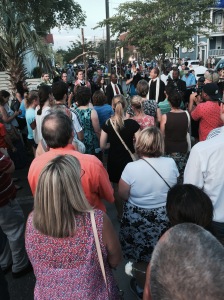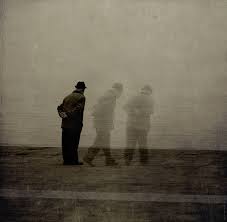There has been a lot of talk about the fact that, if you take a gun into a church and follow up on your stated intent to “kill black people,” then you must be mentally ill. Because, why else would anyone engage in mass murder?
If Dylann Roof was mentally ill, then a significant portion of ignorant cracker bigots are mentally ill too, because I have seen the attitude that underlay this mass murder all too often. And I do find it sick, but not ill.
There are those who have such hatred and ignorance and deep-seated insecurity that they can only feel validated if they declare themselves superior to someone, anyone. If they are human, well then animals are only here for their enjoyment because God gave us dominion over animals, so cockfighting or taping a dog’s mouth shut is just fine. If they are white, they feel that white is the default for “normal” and anything else is inferior. If they are men, they need to feel that the “little woman” is only as good as the needs she serves.
Sick in the way that their attitude is a cancer upon society, but not mentally ill. Sick in a way that ferments hatred in a stew of fear and paranoia that can lead to killing, but not mentally ill.
Now, mentally ill people do kill. But the truth is, studies cited by the Substance Abuse and Mental Health Services Administration (SAMHSA) have shown that someone mentally ill is 11 times more likely to be the victim of violence than the perpetrator.
Until there is a diagnosis, we don’t know that Dylann Roof was mentally ill. And assuming that he must be, gives him an out, an excuse. As though he couldn’t help himself. Rehab has become the confession booth of the modern age for too many celebrities: one stop and all is forgiven. Whatever I did, I must have an addiction or illness, because why else would I behave this way?
I am in no way minimizing the struggles of those with substance use disorders or mental illness. Quite the contrary. There are people who have to work at recovery every day of their lives, and their struggle is heroic. What I am saying is that when we use mental illness as the blanket “reason” for the unreasonable, we cover the very real issues – the bigotry and sense of entitlement that lets people tell themselves that they are somehow better than everyone else just because of who they are, and not because of what they have done.

